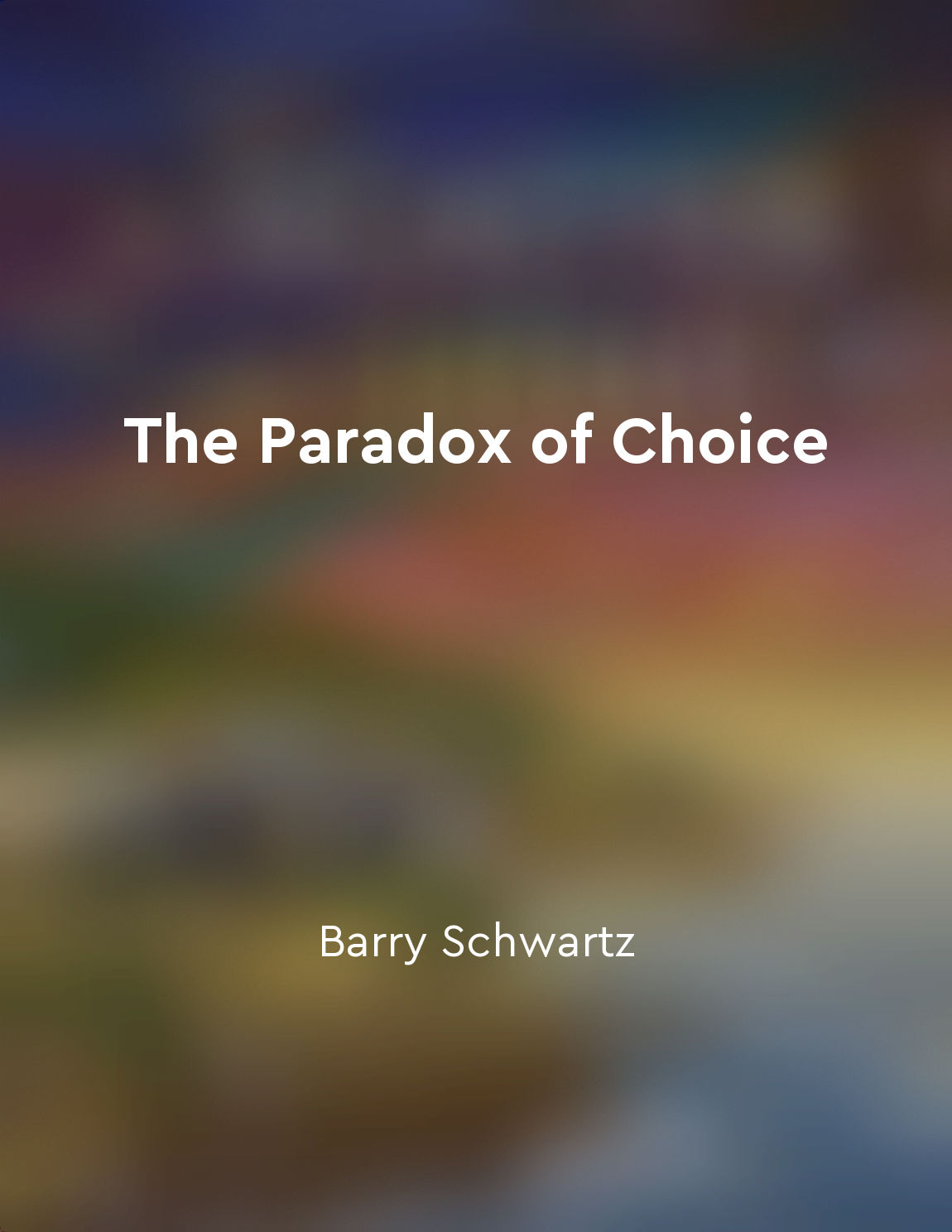People may have difficulty justifying their choices when presented with numerous options from "summary" of The Paradox of Choice by Barry Schwartz
When faced with an abundance of options, individuals often find themselves struggling to explain the rationale behind their decisions. This phenomenon occurs because the more choices we have, the higher the expectations we place on ourselves to make the best decision possible. As a result, we tend to second-guess our choices and constantly wonder if we could have made a better selection. This internal pressure to justify our decisions can lead to feelings of dissatisfaction and regret, as we are constantly questioning if we made the right choice among the multitude of options available to us. Moreover, the presence of numerous options can also make it challenging for individuals to accurately assess the pros and cons of each choice. With so many alternatives to consider, it becomes increasingly difficult to weigh the trade-offs and make a decision that aligns with our values and preferences. This cognitive overload can lead to decision fatigue, where individuals feel mentally drained and overwhelmed by the sheer number of options in front of them. Consequently, this can hinder our ability to make a confident and well-informed choice, as we may struggle to process all the information and make a decision that we feel confident in justifying. Furthermore, the abundance of choices can also result in a phenomenon known as "opportunity costs." When presented with numerous options, individuals may become fixated on what they are potentially missing out on by choosing one option over another. This focus on what could have been can detract from our ability to fully appreciate and enjoy the choice we ultimately make. As a result, we may find it challenging to justify our decision because we are preoccupied with the hypothetical outcomes of the other options we did not choose.- The concept of having difficulty justifying our choices when presented with numerous options stems from the psychological burden of decision-making in the face of abundance. The pressure to make the best possible choice, the struggle to assess all the options, and the fixation on opportunity costs all contribute to the challenge of explaining our decisions. By understanding these dynamics, we can work towards making choices that align with our values and bring us a sense of satisfaction and fulfillment.


